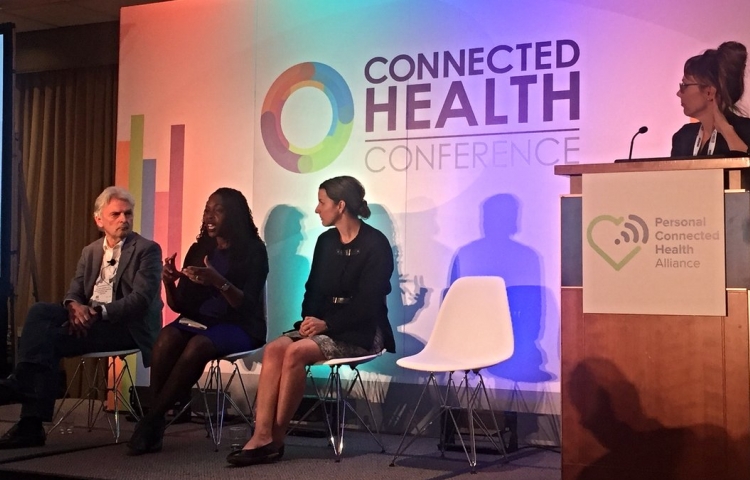
How Do You Change Behavior?
How Do You Change Behavior?
As a clinical psychologist, I get asked this question all the time. The short but unsatisfying answer is “it’s complicated.” My field has spent decades working on an answer and it changes depending on which behavior we want to change, whose behavior, and what is preventing that change from happening. The internet of things has given behavioral scientists new tools and access to unprecedented data about behavior that can greatly advance our science. I see enormous opportunities for innovation at the convergence of behavioral science and connected health. Unfortunately, we have been in separate worlds and haven’t yet reached the potential of that convergence. In usual academic fashion, we (behavioral scientists) haven’t done a great job of communicating our science to sectors where the synergies could lead to game changing breakthroughs. Admittedly, the “it’s complicated” response never does knock anyone’s socks off. Our less than optimal outreach has allowed misperceptions about behavioral science to flourish. I’ve heard behavioral science equated to behavioral economics (one of many approaches in behavioral science) or much more puzzling, referred to as a subfield of marketing. The good news is that we have some exciting plans to bring a broader understanding of behavioral science to the connected health space.
I am the President-Elect of the Society of Behavioral Medicine, the largest professional society of behavioral scientists who study health behavior change. Perhaps the most well-known example of the work of our members is the Diabetes Prevention Program, which has been commercialized by several companies in recent years. We’ve also created effective programs for smoking cessation, insomnia, physical activity, and depression, to name a few. We were excited to hold a Behavior Change Roundtable at Connected Health Conference in October, where we gathered some of our top thinkers to plan how we can better communicate our insights and value proposition to the connected health community. We then hosted a panel discussion at the conference to share how we think about health behavior change. We didn’t let ourselves off the hook with “it’s complicated.” Here’s a window into our discussion.
In any behavior change program we observe a range of outcomes. For example, in a behavioral weight loss program some people will exceed the weight loss goal, others will just miss it, and others will not lose much weight at all. Behavioral scientists tackle this by studying how these folks are different, with the goal of identifying opportunities for improving outcomes, a value we share with our colleagues in industry. Our framework can be simply stated as:
People are Different
Context Matters
Things Change
Much of our science focuses on identifying the specific elements of each that contribute to (or impede) behavior change and then developing interventions based on this knowledge. This concept may be familiar to industry, but what is unique in academia is our commitment to measuring, documenting, analyzing, and publishing what we find. “People are Different” factors affecting behavior might include demographic variables, medical conditions, or stress. “Context Matters” factors might include social support or access to opportunities for physical activity. Each factor cues us to implement specific strategies. “Things Change” refers to how these factors vary over a lifetime. In one life, the same person may have been single, married, divorced, poor, wealthy, an athlete, obese, a student, an executive, well, and sick. A patient who was successful at losing 50 pounds 5 years ago may be struggling to lose a single pound today. If we can identify factors that influence behavior, and then predict precisely when those factors will change, we can provide a personalized, responsive in-the-moment intervention that matches exactly what a patient needs at the time they need it. This is the focus of behavioral science today.
Prior to the technology revolution, we developed human-delivered interventions and have volumes of randomized controlled trials showing efficacy. A big challenge was that reliance on humans to collect and interpret data limited the type and amount of data that could be collected and thus the degree to which interventions could become more agile and responsive over time. Human-delivered interventions are also costly to implement and scale. We are using connected health technologies to solve these problems.
We’ve had a number of successes using technology. For example, one trial showed that a digital weight management program achieved weight loss comparable to the Diabetes Prevention Program, with high engagement, including use of connected devices most days of the week for 6 months. Another showed just 8 weeks of a technology-delivered cognitive behavioral therapy for insomnia resulted in remission for 60% of patients at 1 year. Finally, another was successful at getting 1/3 of overweight, low income, Latina post-partum moms back to pre-conception weight using a behavioral science-based online program that netted on average 1-2 weekly logins over a year. These are just a few examples from our movement into the connected health space.
We are excited to partner with companies that share our interest in improving health through behavioral science. In March 2018, we are sending some of our biggest thinkers to the HIMSS Annual Conference. In April 2018, the annual conference of the Society of Behavioral Medicine will be held in New Orleans, LA. Please join us! In July 2018, we will be hosting an exciting, invitation-only conference for industry leaders wanting a deep dive into behavioral science. We will be showcasing some of our most exciting research findings on obesity, patient engagement, motivational interviewing, long-term behavior change, behavioral economics, personalized behavioral medicine, and targeted messaging. For more information about this event, please contact Lindsay Bullock at lbullock@sbm.org. We look forward to improving health through behavior change together.
Sherry Pagoto, PhD is a Professor in the Department of Allied Health Sciences at the University of Connecticut and Director of the UConn Center for mHealth and Social Media. She tweets at @DrSherryPagoto.




